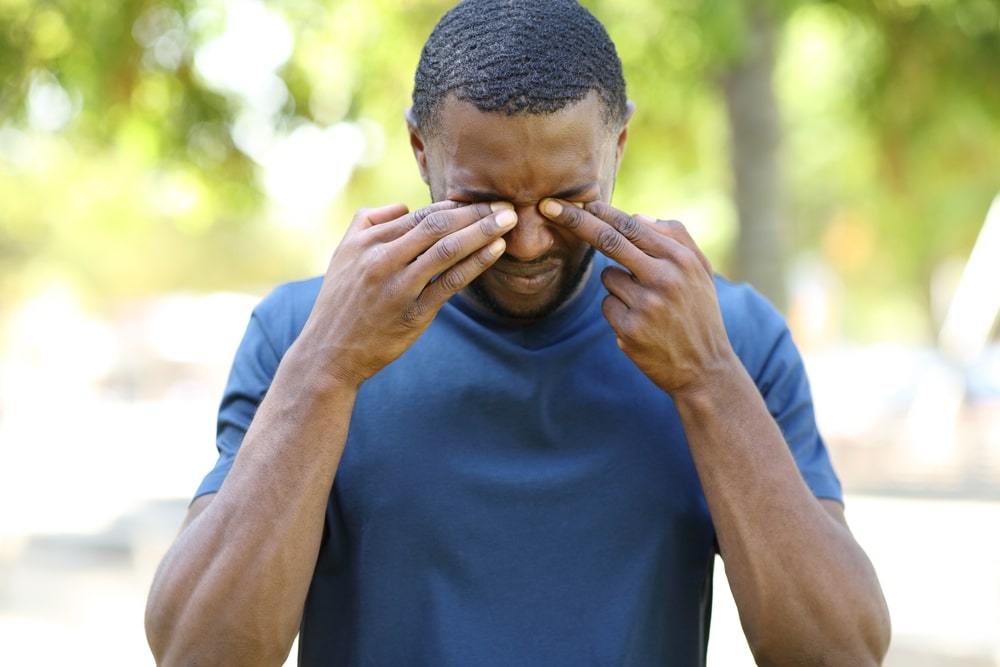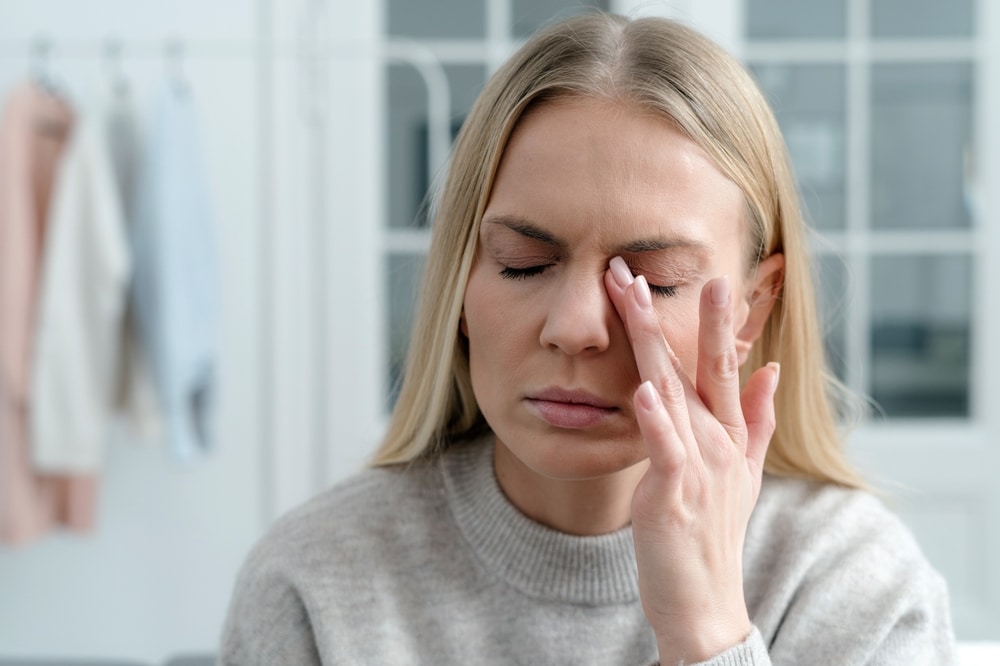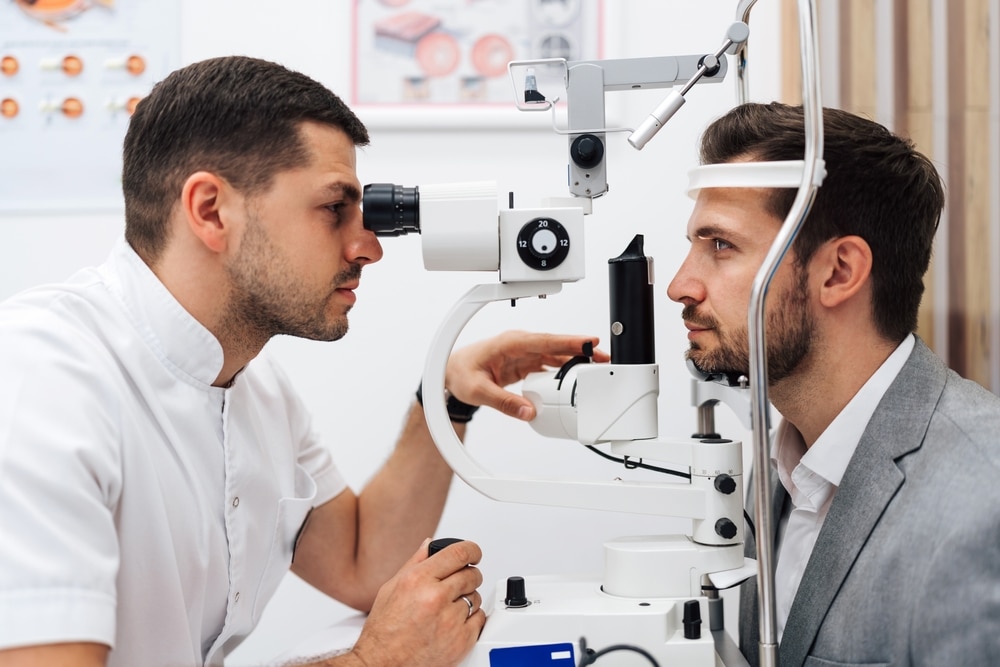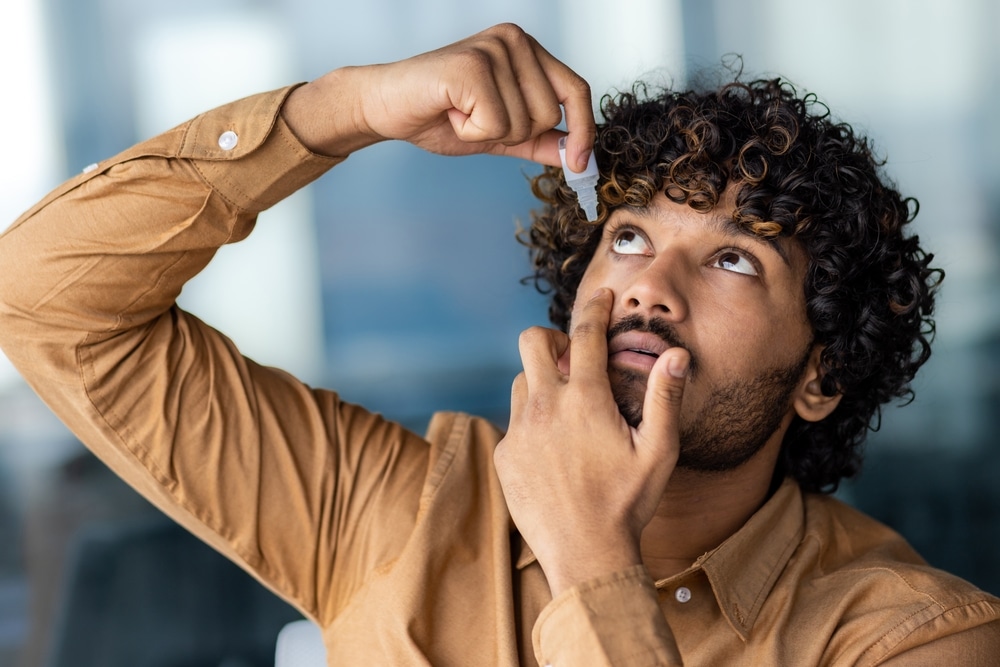Dry, Itchy Eyes? It’s Time to Do Something About it

Do your eyes frequently feel irritated? Do you experience watering, burning, or itching?
These can be some of the signs associated with having dry eyes. Although you may think that having dry eyes only means dryness, that’s just the beginning of the frustrating symptoms you could experience.
Dry eyes are common and also highly uncomfortable. But more than that, dry eyes can also cause permanent damage to your eyes and vision.
So, what can you do? The key is to find treatments to alleviate your symptoms and prevent these long-term consequences from occurring. Keep reading to discover why, if you have dry, itchy eyes, it’s time to do something about it!
What are Dry Eyes?
Your eyes become dry when you don’t have a good tear film. Your tear film is the layer of tears that coats your eyes each time you blink.
However, your tear film may lack necessary nutrients due to environmental factors that cause your tears to evaporate too quickly. It can also be lacking if there’s something wrong with your tear composition.
Dry eye symptoms are usually the same regardless of the cause. But how do you know if your eyes are dry?

The only way to know for sure is to see your eye doctor at Mueller Vision. But these common symptoms may indicate that your eyes are too dry due to dry eye syndrome, like:
- Burning
- Stinging
- Eye redness /inflammation
- Excessive tearing
- Blurry vision
- Light sensitivity
- Mucus build-up in eyelashes
- Experiencing a feeling of grit in the eyes
- Itchiness
If you exhibit several of these symptoms, you may have dry eyes. Note that sometimes, eye allergy symptoms overlap with dry eye symptoms, and it’s possible to have both simultaneously.
Only your ophthalmologist can tell you if you’re suffering from eye allergies or dry eye (or both), but there is a critical difference in symptoms. Dry eyes tend to burn and feel gritty more than they itch, and eye allergies tend to make your eyes itch more than burn.
Temporary vs. Chronic Dry Eye
Your eyes can become too dry for temporary reasons, like being in a dry environment. In such cases, changing whatever has triggered your dry eyes should alleviate your symptoms.
However, it’s also possible to have chronic dry eye, also called Dry eye syndrome. Dry eye syndrome is prevalent in older adults, women (especially pregnant women and women going through menopause), and people with inflammatory skin conditions like rosacea. But anyone can develop dry eye syndrome.
An imbalance in your tear composition usually causes dry eye syndrome. Your tears have three distinct layers:
- The inner layer is made from mucus
- The middle layer is made from aqueous (water)
- The outer protective layer is made from lipids (oil)
When your eyes don’t produce one of these components, your tears don’t moisturize your eyes enough, making them feel dry and irritated.
When Should You Seek Dry Eye Treatment?

You should see your eye doctor as soon as possible if your dry eye symptoms haven’t improved. It’s imperative to have a healthy tear film, as keeping your eyes well-lubricated protects them from debris and prevents bacteria from building up.
When you have dry eyes, your eyes are much more likely to develop abrasions and become infected. When corneal abrasions become infected, this can lead to corneal ulcers, which are both painful and can permanently damage your vision.
Don’t ignore your dry eye symptoms. Instead, get the help you need to avoid the potential for these consequences.
What are Your Dry Eye Treatment Options?
There are a variety of ways to treat dry eyes. However, before you can receive treatment, your eye doctor will need to examine your eyes and take a sample from your tear film.
Getting a sample of your tear film will help your eye doctor determine if you have dry eyes and, if so, what components of your tear film you’re missing. Treatments for dry eyes are very minimally invasive and often begin with simple lifestyle changes.
There are also in-office therapies and minor procedures that can treat dry eyes. Your ophthalmologist at Mueller Vision may recommend some of these treatments based on the severity of your condition:
Over-The-Counter Medication and Lifestyle Changes
Over-the-counter lubricating eye drops, also called artificial tears, can alleviate a lot of immediate discomfort associated with dry eyes. Other simple remedies and lifestyle changes, like using a humidifier in your home and applying a cool compress over your eyes, may also help.
Diet has been shown to influence tear production. Your eye doctor may recommend taking omega-3 fatty acid supplements (such as fish oil or flaxseed oil) and consuming more omega-3 fatty acid rich foods, like fatty fish, walnuts, and eggs.

Prescription Eye Drops
If over-the-counter medication isn’t alleviating your dry eye symptoms, your eye doctor may prescribe prescription eye drops. These eye drops can treat inflammation commonly associated with dry eyes and promote better tear production.
LipiFlow
Lipiflow is an in-office therapy that uses gentle light and heat to soften blocked oil glands. These glands, called meibomian glands, produce the lipid layer that protects your tears.
If your tear film doesn’t have an adequate lipid layer, your tears can evaporate too quickly, making your eyes feel too dry. LipiFlow can help get oil flowing again by treating these blocked meibomian glands so your tears no longer evaporate as quickly. The therapy is non-invasive and uses a device that’s painlessly applied over your eyelids.
Punctal Plugs
Small plugs can be placed into your tear ducts in particularly severe cases of dry eyes. These tear ducts, called puncta, are how tears drain from your eye.
By blocking them, your tears are forced to stay on the surface of your eye for longer, compensating for poor tear quality. Inserting punctal plugs is minimally invasive and can be performed in-office to help provide relief.
Do you have dry eyes? Get the relief you need by scheduling an appointment today at Mueller Vision in Fort Worth, Texas! Haven’t you waited long enough for more comfortable eyes?

